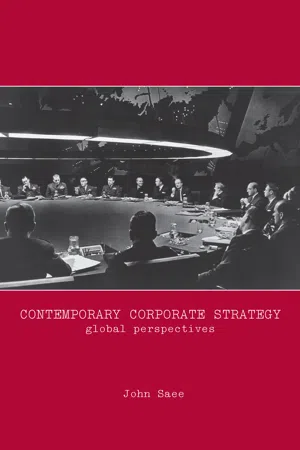Business
Effective Negotiation
Effective negotiation in business involves the skillful communication and strategic decision-making to reach mutually beneficial agreements. It requires understanding the needs and motivations of both parties, active listening, and the ability to find creative solutions. Successful negotiation often results in favorable outcomes for all parties involved, fostering positive long-term relationships and business success.
Written by Perlego with AI-assistance
Related key terms
1 of 5
9 Key excerpts on "Effective Negotiation"
- eBook - ePub
- William G. Stripp, J.D., Philip R. Harris, Robert T. Moran(Authors)
- 2012(Publication Date)
- Routledge(Publisher)
Clearly the situations just presented identify why we need to understand the basic principles of negotiating, so that negotiating can be more skillful. When we understand the motivations of others, we can better communicate with them, which could lead to more Effective Negotiations. Negotiation skills are very important in today's global marketplace and they are becoming necessities for business managers and executives who deal with business transactions across national borders.Negotiating is a difficult term to define because each author defines it a bit differently. For our purposes we will use the following definition [6]:International Business Negotiations—negotiations that result in mutual benefit, and that are purposeful, rather than reactive, occurring between individuals with different cultural backgrounds.Negotiation is a process in which two or more entities come together to discuss common and conflicting interests in order to reach an agreement of mutual benefit. A successful negotiation is a “win-win situation” in which both parties gain. In international business negotiations, there are cultural dimensions in every aspect of the negotiations. The surest way for a negotiator to establish good relations with foreign negotiators is to demonstrate that an agreement is of mutual advantage. According to Moran and Stripp [11], the secret of negotiation is to point out the common advantages to both parties and to link these advantages so that they appear to be equally balanced.It is important for persons studying negotiations to understand that negotiation is a learned activity and that with practice the negotiating skills can be improved. The following information can be helpful in understanding the learned behaviors for negotiating as human resource professionals are aware of the process of learning, especially adult learning, which has different characteristics than the child learning process. HR specialists should help their audience to understand the basic principles of adult learning in order to prevent their frustration when they are learning the negotiation process.One very important aspect of this process deals with the orientation of negotiations across cultures. The traditional American style of negotiating emphasizes the “deal.” It is a single and static emphasis that stresses only the present situation. Compare this to other cultural negotiating styles and we find the “relationship” orientation. This style has multiple emphasis (what's next); focuses on the past, present, and future negotiations; and is dynamic in nature. It is important to realize that the traditional American style of deal-making must be adjusted to focus on building relationships in the international business environment. - eBook - ePub
Strategic Corporate Negotiations
A Framework for Win-Win Agreements
- Andrea Caputo(Author)
- 2019(Publication Date)
- Palgrave Pivot(Publisher)
That is negotiation. Negotiations are essential and fundamental for businesses. Improving negotiation skills, as well as increasing the ability to negotiate effectively, is crucial in the managerial, political, and business contexts. It is commonly acknowledged within the literature that negotiation is a process through which two or more parties could reach a needed joint decision while having different preferences (e.g., Fisher et al. 1981 ; Lax and Sebenius 1986 ; Lewicki et al. 2014 ; Pruitt 1981 ; Raiffa et al. 2002 ; Rubin and Brown 1975 ; Zartman 1977). Due to the interdependence, which reigns over and inside multi-actor decision processes (J. D. Thompson 1967), negotiation outcomes are affected by all the decisions made by all the parties involved. It is quite straightforward how, whatever approach we take, the strategy-making process is permeated with a series of negotiations that surround the decisions taken. A negotiation process underlies board meetings where C-level managers take corporate strategic decisions. At the same time, the information brought to the board are the result of a negotiated process where managers strategically decide how to approach the board meetings. Similarly, if we look at any strategy textbook, almost any preparatory activity of analysis to support the strategy-making process can be associated with a negotiation. The same happens when we move the level of analysis to the implementation of strategy. Managers negotiate with each other on how the strategic implementation takes place; they also negotiate at the external of the organization to put the strategy in action, for example, with suppliers, customers, lobbying organizations, and all the stakeholders one can imagine. Given those almost obvious thoughts, everyone with managerial experience would agree that negotiation seems to be left quite aside from strategy literature - eBook - ePub
Contemporary Corporate Strategy
Global Perspectives
- John Saee(Author)
- 2007(Publication Date)
- Routledge(Publisher)
Meanwhile, much of the global trade which occurs around the world involves face-to-face negotiations amongst entrepreneurs and representatives of firms who are engaged in making business deals, literally on a daily basis. Arguably, successful negotiators display a highly developed intercultural communication competence—an essential criterion to conduct successful negotiation across the globe.International negotiation is very complex and difficult because it involves different laws, regulations, standards, business practices and, above all, cultural differences. Most of the difficulties in international negotiations, however, are due to cultural differences. That is why negotiation today is considered one of the single most important global business skills. The saying ‘when in Rome, do as the Romans do’ is an indication of our awareness that to succeed in international negotiation we need to suppress our ethnocentric tendencies. To successfully conclude a business deal, labour agreement or government contract with foreigners, who are in most respects different from us, requires a considerable amount of communication skill. To successfully manage such negotiations, businesspeople need to know how to influence and communicate with members of a culture other than their own (3). It is, therefore, important to understand the cross-cultural sensitivities related to negotiation, and the appropriate strategies and tactics to suit a particular situation. This research article examines the various types of negotiations and negotiation styles that may be adopted by entrepreneurs under different conditions and cultural milieus to reach an agreement while conducting business across cultures.Negotiation defined
Negotiation is conceived asa process in which at least one individual tries to persuade another individual to change his or her ideas or behavior and it often involves one person attempting to get another to sign a particular contract or make a particular decision. Thus negotiation is the process in which at least two partners with different needs and viewpoints need to reach an agreement on matters of mutual interest. - Owen Hargie, David Dickson, Dennis Tourish(Authors)
- 2017(Publication Date)
- Red Globe Press(Publisher)
The more reasons given to justify an argument, the more likely it is that the other side will find (and exploit) weaknesses in one of them. Skilled negotiators have been found to advance a single reason insistently and only if they begin to lose ground do they introduce a subsidiary argument. 105 Overview Conflict in some form seems to be part of organisational life. The process of management invariably involves keeping this disharmony at a level where it does not intrude in dysfunctional ways into the smooth running of the operation. Negotiating is one approach to accomplishing this task and managers are unlikely to be successful if they are weak in this area. Negotiating is typically seen in classic pose as an essentially antagonistic activity in which those engaged play the roles of opponents or enemies, each out to defeat the other. But it does not have to be this way. In most negotiating situations there is scope for co-operation to secure a win–win outcome for the benefit of all. Negotiating and bargaining 207 In any event, the strategy adopted has implications for the shape of the negotiation and the characteristic stages that it passes through. Generally the process should begin with planning and preparing and move through phases of opening, exploring issues, bargaining and finally reaching settlement. The ultimate success of this outcome is dependent on the level of skill of the participants. Skilled negotiators tend to be able to control emotion, build trust, gather and share infor-mation effectively, introduce clarity into the proceedings, and operate through rationality and the weight of logical argument. In so doing, they engage in labelling behaviour, testing understanding, summaris-ing, seeking information and disclosing their feelings and intentions (real or otherwise). They avoid the use of irritators, defend/attack spirals and immediate counter-proposals.- eBook - PDF
The Guide to Entrepreneurship
How to Create Wealth for Your Company and Stakeholders
- Ph.D Szycher(Author)
- 2018(Publication Date)
- Productivity Press(Publisher)
153 Chapter 8 Power Negotiations “He who pays the piper calls the tunes.” The word negotiation is derived from the Latin “ negotiatus ,” which is past participle of “ negotiare ,” meaning “to carry on business.” It is also related to “ negotium ” or “ necotium ” literally meaning “without leisure.” A negotiation is a dialogue between parties, intended to reach an understanding, resolve a point of difference, or gain an advantage, to produce an agreement upon courses of action, or to satisfy various interests of parties involved in the process. Negotiation is a process where each party involved in negotiating tries to gain an advantage for themselves by the end of the process. Negotiation aims at a suitable compromise, in which parties can resolve their opposing interests. Unlike litigation, business negotiation requires the consent of both par-ties. For this reason, negotiating involves the management of expectations. Both parties need to undertake negotiations with realistic expectations—not outcomes, but expectations. In mathematical terms, we can express this negotiation principle thusly: Negotiation Expectations = Satisfaction = Δ (anticipation – reality) 8.1 Business Negotiations 101 “You can get much further with a kind word and a gun than you can with a kind word alone.” —Al Capone The term “negotiating in good faith” is more of a legal principle than a fac-tual case. Negotiations occur primarily for three main reasons: (1) the need 154 ◾ The Guide to Entrepreneurship: How to Create Wealth for Your Company to agree on how to share or divide a limited resource, (2) to create some-thing new that neither party could attain on their own, and (3) to resolve a problem or dispute between the parties. Negotiation should be contrasted with mediation , where a neutral third party evaluates each side’s arguments and attempts to reach a “suitable” or “fair” agreement between the parties. - eBook - PDF
Negotiating Outcomes
Expert Solutions to Everyday Challenges
- (Author)
- 2007(Publication Date)
- Harvard Business Review Press(Publisher)
• Identify the interests of both sides, and develop value-creating options. A sharp negotiator can help the other side see the value of sharing information and expanding value opportunities. • Separate personal issues from negotiating issues. Accom-plished negotiators know that the issues being discussed are not about them—or even about the individuals sitting across the table. Instead, accomplished negotiators operate with objective detachment and focus on producing the best possible outcome. • Recognize potential barriers to agreement. Barriers aren’t always obvious. A skillful negotiator finds and neutralizes them. • Know how to form coalitions. Not every negotiator is dealt a winning hand. The other side often has greater power. A good negotiator, however, knows that a coalition of several weak players can often counter that power. More important, a skilled negotiator knows how to build such a coalition on a foundation of shared interests. • Develop a reputation for reliability and trustworthiness. The most Effective Negotiations are built on trust. Trust formed through one phase of negotiation pays dividends in the next. A negotiator earns trust by practicing ethical behavior and by following through on all promises. • Recognize relationship value. Some negotiations, usually the integrative type, involve parties that have important The Skills of Effective Negotiators 67 relationships they hope to retain. For example, managers want to maintain positive relationships with their direct subordinates, manufacturers want to preserve strong rela-tions with their key suppliers, and so on. An effective nego-68 Negotiating Outcomes Tips for Managing Relationship Value • Create trust. Trust is created when people see tangible evidence that your words and actions are in harmony. So avoid making com-mitments you may not be able to honor, and always do what you have committed to do. - eBook - ePub
Negotiation Excellence: Successful Deal Making (2nd Edition)
Successful Deal Making
- Michael Benoliel(Author)
- 2014(Publication Date)
- WSPC(Publisher)
1 Planning and Preparation for Effective Negotiation Meina Liu University of Maryland, College Park Sabine Chai Western Kentucky University Negotiations take place in a wide array of forms, whether to resolve a dispute, get a better deal, or find new solutions that neither party could realize on their own. The first, and often the most important step toward successful negotiation is planning and preparation. According to Thompson (2009), about 80% of negotiators’ efforts should go toward the preparation stage. However, planning and preparation go beyond what negotiators should do before negotiation. Because negotiation is a dynamic communication process where new information, concerns, emotions, and goals may arise, negotiators should also be prepared for dealing with contingencies as well as factors that may interfere with goal pursuit. The purpose of this chapter, therefore, is to provide guidelines for effective planning and preparation both before and during the negotiation process, including guidelines for assessing the negotiation situation, analyzing the negotiation structure, planning for strategies that facilitate goal attainment, and re-orienting to manage contingencies that may arise during the dynamic, interactive negotiation process. Negotiation Analysis: Know the Situation, Yourself, and Your Opponent Negotiation is often defined as three “I ’ s” — an interaction between two or more interdependent parties who perceive incompatible goals. Negotiation parties enter the negotiation because they depend on each other to fulfill some needs but also perceive the other party’s interests as conflicting with their own. To reach a mutually acceptable agreement negotiation parties have to cooperate with and understand each other - eBook - PDF
Political and Civic Leadership
A Reference Handbook
- Richard A. Couto(Author)
- 2010(Publication Date)
- SAGE Publications, Inc(Publisher)
81 N EGOTIATING K IMBERLY A. H UDSON Air University N egotiations are a pervasive activity in human relations, including family and social life as well as legal, business, political, military, and diplo-matic affairs. Scholars from all of these fields and others, including psychology and communication, have developed unique approaches to analyzing and teaching negotiation. The systematic study of negotiation has expanded and flourished across several disciplines, most notably since the early 1970s. Some reasons for the increased interdisciplinary interest in negotiation include overburdened courts (Kriesberg, 2007, p. 35), interdependence, competition, the information age, and globalization (Thompson, 2005, p. 3). Additionally, the study of negotiation as a process has grown out of an emerging consensus around the “idea that conflicts often could be restructured and reframed so that partisans would regard conflict as a shared problem that had mutually acceptable solutions” (Kriesberg, 2007, p. 35). Although there is voluminous and varied literature on the history, significance, and theory of negotiation from different disciplinary perspectives, a common core of concepts has been identified as foundational across the canon of negotiation. An introductory, undergraduate course on negotiation in law, business, political science/public policy, psychology, or communication would address at least the following topics (Schneider & Honeyman, 2006, p. 726): 1. Differences between distributive and integrative negotiation 2. Varieties of negotiation strategies 3. The process of cooperative negotiation, including brainstorming and option creation 4. Technical concepts relevant to the negotiation process, including the best alternative to a negotiated agreement (BATNA), aspiration and reservation points, and bargaining zones 5. The importance of preparation This chapter focuses on this common core of concepts and suggests resources for additional study. - eBook - PDF
Practical Negotiating
Tools, Tactics & Techniques
- Tom Gosselin(Author)
- 2007(Publication Date)
- Wiley(Publisher)
Working together, we can develop a better way to plan and execute negotiations and reach more win-win outcomes. KEY POINTS ☞ Conflict is inevitable. Negotiation is a survival skill. ☞ Conflict is a situation where two or more parties have in- terests or perceptions that differ. ☞ Negotiation is a process of exchange to resolve conflict and reach a mutually beneficial agreement. ☞ Methods for resolving conflict include mediation, arbitra- tion, litigation, and negotiation. The Need for Negotiation 15 ☞ Negotiation is the process of exchange that provides the highest likelihood of satisfying the needs of both parties, while maintaining the relationship. ☞ Conflict exists in many venues (e.g., in organizations or families; with customers). ☞ Power determines the choice of which process of ex- change to use (i.e., not engaging, fixed price, bargaining, or negotiating). SECTION ONE Planning the Negotiation CHAPTER 2 Wants and Needs PLANNING THE NEGOTIATION 20 The best way to get what you want is to help the other side get what they want. —Ronald Shapiro, The Power of Nice Win-Win Agreements Identifying and satisfying the underlying needs of all parties repre- sents the essence of the negotiation process. Commitment to this outcome creates win-win agreements. Previous workshop participants have defined a win-win out- come as: • All parties perceive value in the agreement. • Mutual agreement that both parties reached/achieved their goals or strategies, and left a window open for change. • A mutually beneficial agreement achieved between two or more parties that satisfies all needs. • When parties are satisfied that: —Enough objectives have been met such that all sides feel the agreements are fair. —Neither party feels they have lost or that the other party has lost. —The long-term relationship is still healthy and valuable, and has been supported. A win-win agreement occurs when the underlying needs of both parties are satisfied.
Index pages curate the most relevant extracts from our library of academic textbooks. They’ve been created using an in-house natural language model (NLM), each adding context and meaning to key research topics.








